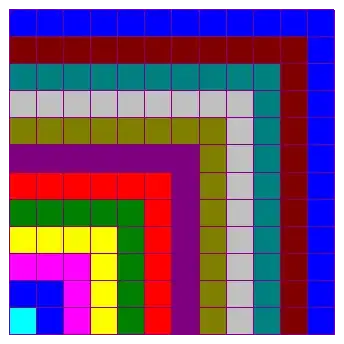Umberto has the key, and I feel like typing. I hope I am not spoiling someone's homework.
$\textbf{Theorem.} \, \forall \, m,n \in \mathbb{N}, (1+3+...(2n-1))^m=n^{2m}.$
$\textbf{Proof.}$ We begin by proving that $(1+3+...+(2n-1))=n^{2},$
by induction on $n$, and then conclude that $(1+3+...+(2n-1))^m=n^{2m}$ by properties of exponents.
For for the base case let $n=1$. Then
$$(2 \cdot 1-1)=1=1^2.$$
Assume the series holds for $n=k$. Then
$$(1+3+...+(2k-1))=k^2.$$
For the inductive step, we let $n=k+1$ to show that
$$(1+3+...+(2k-1)+(2k+1))=(k+1)^2.$$
On the left side of the equality we have,
$$
\begin{align*}
(1+3+...+(2k-1)+(2k+1)) &= (1+3+...+(2k-1)) + (2k+1) \\
&= k^2 + (2k+1) \\
&= k^2+2k+1 \\
&= (k+1)^2.
\end{align*}
$$
Thus we have shown that
$$(1+3+...(2n-1))=n^{2}.$$
Now by exponentiation on both sides by $m$,
$$\qquad\qquad (1+3+...(2n-1))=n^{2} \Rightarrow (1+3+...(2n-1))^m=n^{2m}. \qquad\qquad \blacksquare$$
Please feel free to refine this, I no longer feel like typing.
